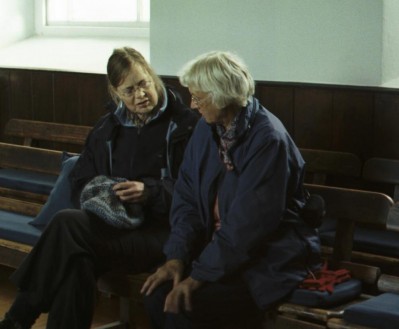“But I am among you as one who serves.” – Luke 22:27
At Christmas the people who ordinarily come to have dinner at the Mission here in Fort Collins are invited to dine at one of the downtown restaurants – seated and treated as guests. They receive special little gifts – a winter hat, a pair of mittens, and sometimes a gift card for $15 with which they can buy food or gas.
One year, in the week after this event, Rosean had finished her duties as cook and was sitting in the Mission dining room chatting with the guests. One fellow said he was really sad to have missed the special dinner. He had just gotten a new job, he said, and he had been working.
“Congratulations,” Rosean said.
“Thanks,” he replied. Then with a sigh he added, “I could have used the gift card, too; I’m really getting low on gas, and I don’t know if I’ll make it until pay day.”
The next morning Rosean went to the staff member who was in charge of getting the Christmas gift cards and asked if there were any extras. There were, so she set one aside for the fellow with whom she had been talking.
When the fellow came in to lunch, Rosean gave him the card.
He started to cry.
“It’s no big deal,” she told him. “If you had been at Christmas dinner you would have gotten one of these with everyone else.”
“It’s not that,” he replied. “It’s that you really listened to me. You heard what I said. Nobody has done that for a very long time.”
Listening is the cornerstone of being servants to one another. To do it we have to set aside our assumptions and our ego needs and, in humility, open our hearts. It is the key to being relevant helpers and effective allies.
It is important to listen across socioeconomic, cultural, religious and racial divides. Only by being vulnerable and humble in this way can we establish the bridges across which true social change occurs. Especially it is important for those who have resources and privilege to listen to those who do not. In the same way that the victorious control how history is written, it is those with social privilege who control language and concepts. We have to listen to the ideas that have never been included before.
Good listening can entail a small ego death. It is hard work. Not only does it mean setting aside your personal agendas, it means risking appearing foolish. Asking for clarification, for definitions, for context, all can seem extremely tedious and even shame-inducing. But it is very important.
When they were jockeying to determine who was the greatest among them, Jesus told his disciples that they would have to let go of all that ego stuff. “The greatest among you must become like the youngest, and the leader like one who serves,” he said. “I am among you as one who serves.”
By listening well to others, let us be among the people of the world as those who serve.
Laurie Gudim is a writer and religious iconographer who lives in Fort Collins, CO. You can view some of her work at Everyday Mysteries.

